Charlotte Schluger
Thread With Caution: Proactively Helping Users Assess and Deescalate Tension in Their Online Discussions
Dec 02, 2022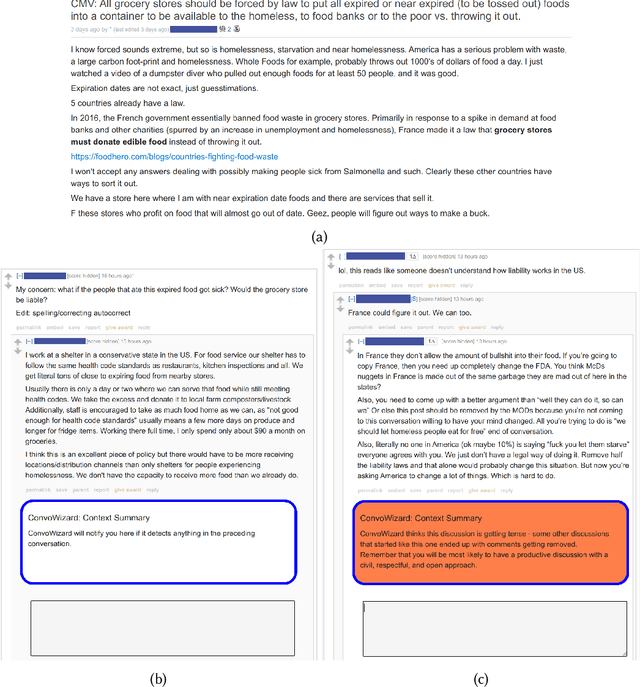

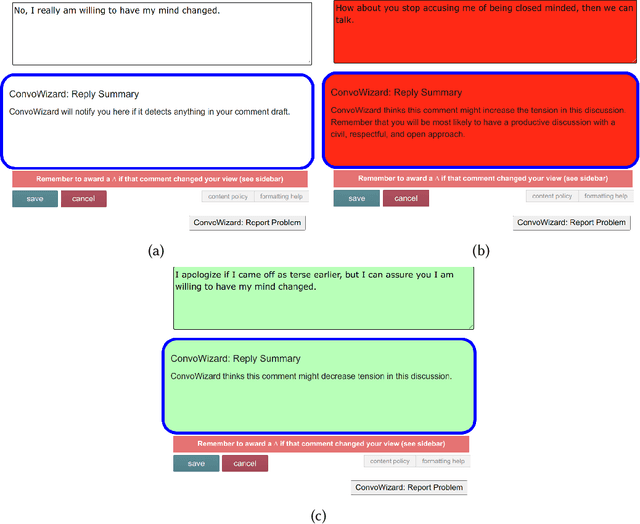

Abstract:Incivility remains a major challenge for online discussion platforms, to such an extent that even conversations between well-intentioned users can often derail into uncivil behavior. Traditionally, platforms have relied on moderators to -- with or without algorithmic assistance -- take corrective actions such as removing comments or banning users. In this work we propose a complementary paradigm that directly empowers users by proactively enhancing their awareness about existing tension in the conversation they are engaging in and actively guides them as they are drafting their replies to avoid further escalation. As a proof of concept for this paradigm, we design an algorithmic tool that provides such proactive information directly to users, and conduct a user study in a popular discussion platform. Through a mixed methods approach combining surveys with a randomized controlled experiment, we uncover qualitative and quantitative insights regarding how the participants utilize and react to this information. Most participants report finding this proactive paradigm valuable, noting that it helps them to identify tension that they may have otherwise missed and prompts them to further reflect on their own replies and to revise them. These effects are corroborated by a comparison of how the participants draft their reply when our tool warns them that their conversation is at risk of derailing into uncivil behavior versus in a control condition where the tool is disabled. These preliminary findings highlight the potential of this user-centered paradigm and point to concrete directions for future implementations.
* 37 pages, 2 figures. More information at https://www.cs.cornell.edu/~cristian/Thread_With_Caution.html
Proactive Moderation of Online Discussions: Existing Practices and the Potential for Algorithmic Support
Nov 29, 2022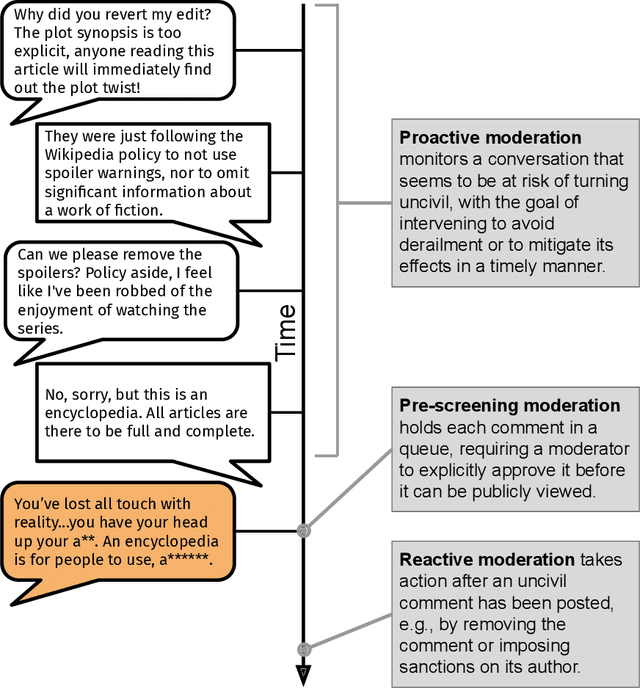
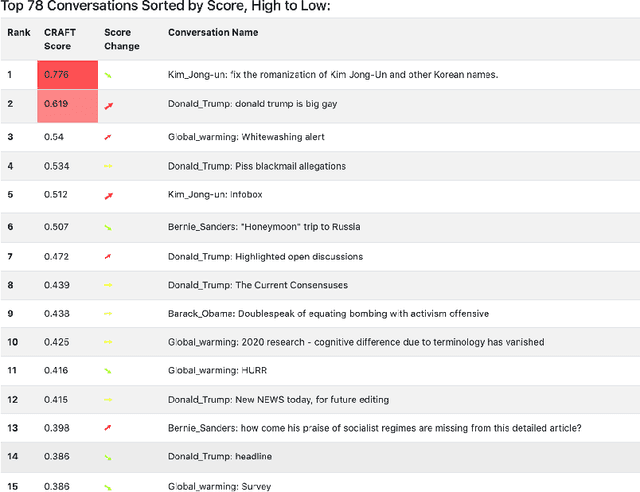
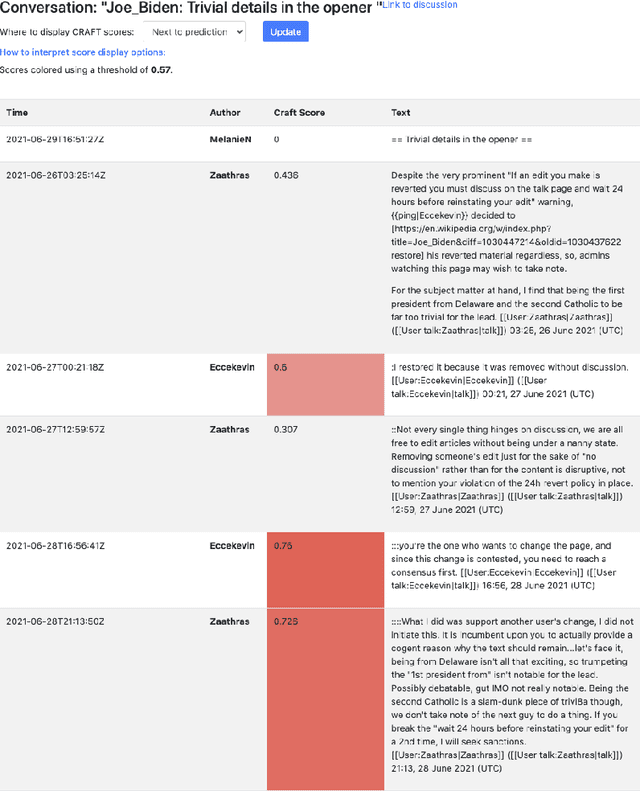
Abstract:To address the widespread problem of uncivil behavior, many online discussion platforms employ human moderators to take action against objectionable content, such as removing it or placing sanctions on its authors. This reactive paradigm of taking action against already-posted antisocial content is currently the most common form of moderation, and has accordingly underpinned many recent efforts at introducing automation into the moderation process. Comparatively less work has been done to understand other moderation paradigms -- such as proactively discouraging the emergence of antisocial behavior rather than reacting to it -- and the role algorithmic support can play in these paradigms. In this work, we investigate such a proactive framework for moderation in a case study of a collaborative setting: Wikipedia Talk Pages. We employ a mixed methods approach, combining qualitative and design components for a holistic analysis. Through interviews with moderators, we find that despite a lack of technical and social support, moderators already engage in a number of proactive moderation behaviors, such as preemptively intervening in conversations to keep them on track. Further, we explore how automation could assist with this existing proactive moderation workflow by building a prototype tool, presenting it to moderators, and examining how the assistance it provides might fit into their workflow. The resulting feedback uncovers both strengths and drawbacks of the prototype tool and suggests concrete steps towards further developing such assisting technology so it can most effectively support moderators in their existing proactive moderation workflow.
* 27 pages, 3 figures. More info at https://www.cs.cornell.edu/~cristian/Proactive_Moderation.html
 Add to Chrome
Add to Chrome Add to Firefox
Add to Firefox Add to Edge
Add to Edge